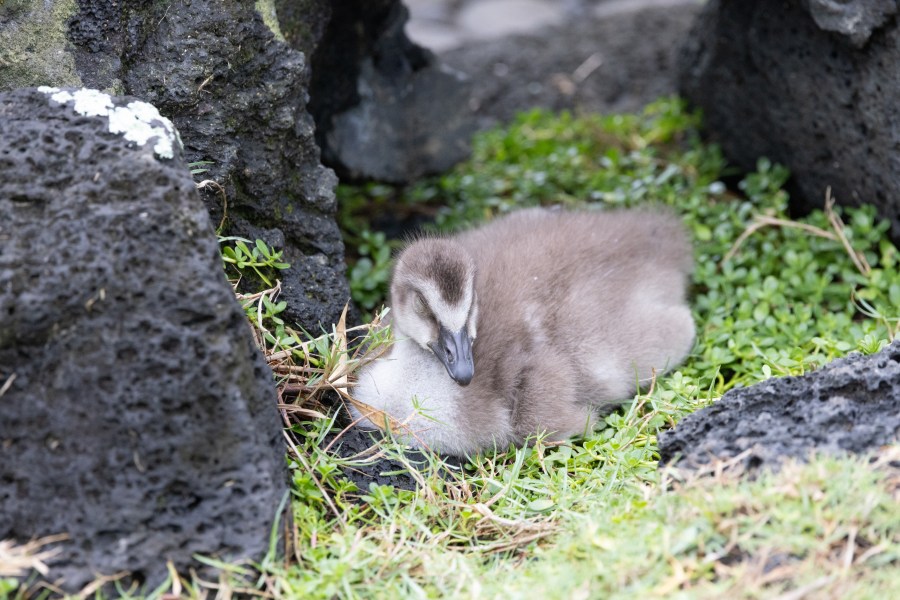HONOLULU (KHON2) — It’s a disease that is only passed along through the feces of feral cats, but how did it cause the death of a nēnē gosling in Hilo?
In March, officials found a dead nēnē gosling at Liliʻuokalani Park and Gardens. Officials from the DLNR Division of Forestry and Wildlife sent the gosling to receive an animal autopsy, necropsy, to find out if toxoplasmosis was the reason for its death.
“Toxoplasmosis, or ʻtoxo’ for short, according to the USGS, continues to be the chief cause of death for infectious diseases for nēnē and critically endangered Hawaiian monk seals,” DLNR Chair Dawn Chang explained. “We must keep cats out of native wildlife habitats or we’re likely to see more deaths among Hawai‘i’s State Bird population.”
These feral cat colonies roam around areas where endangered or threatened species may also live.
DOFAW biologist Raymond McGuire sent the gosling to the United States Geological Survey National Wildlife Health Center and noted that this death is especially sad.
According to the DLNR, the gosling’s mother had another chick taken away from her in March 2023, after a woman snatched the baby in a Hilo park.
Officials urge the public to refrain from feeding and interacting with the cat colonies to protect the native species.
“We know, as animal lovers their hearts are in the right place, but in addition to caring for wild cat populations please consider the tragic impacts imposed on two of the most iconic wildlife species in Hawai‘i, nēnē and monk seals. Open your hearts to them above non-native species like cats,” said McGuire.
In Waikoloa, DOCARE officials have ordered feral cat feeding to stop at Queen’s Marketplace. Reports said nēnē were seen eating cat food alongside a large population of wandering cats.”
“By feeding feral cats, people are clearly harming and killing nēnē, perhaps inadvertently, but the outcome is the same,” Chang added.
In an effort to further protect the nēnē population, the Friends of Liliʻuokalani Gardens have placed signs informing visitors that it is illegal to touch, harass, feed, or harm a nēnē.
